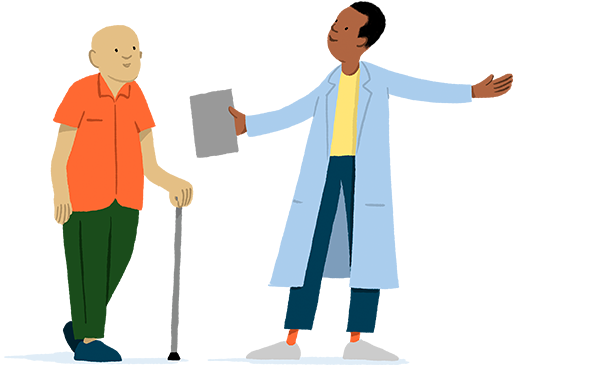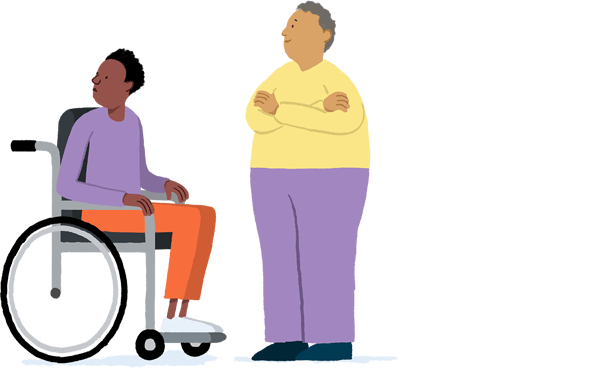If someone you care for is taking part in a clinical trial, you may need to support them during their participation. Caregivers can be a close family member, such as a spouse or sibling, a close friend, or a professional carer.
Watch the video to learn about the importance of caregivers in trials and what type of role they can play:
What else do I need to know?
Informed consent
Before the person you care for takes part in a trial, a detailed description of the trial, as well as possible risks and benefits, are provided in writing in an Informed Consent Form (ICF) and discussed with you both. You and/or the person you care for will be asked to review and sign this form prior to taking part. But before you sign the ICF, you should make sure you have all the information on the following important topics:
In addition to knowing how long the trial will last, specific details about participation are important as well. What days and times are appointments available? How long will each appointment last?
In most cases, the investigational drug or placebo, as well as trial-related medical exams, procedures, laboratory tests, and travel, are all covered by the trial sponsor. Be sure to find out if reimbursement options are available.
Is there a trial site nearby? How far and how often will you and the person you care for need to travel to appointments? These are important considerations, as you will likely have more frequent appointments than for regular doctor visits. Some people are happy to travel a long way for the right trial; others prefer to stay more local.
As a study partner, you may be an advocate for the person you care for. Use the informed consent process as an opportunity to understand their concerns and speak up with any questions they or you may have.
Trial-related materials are sometimes available in more than one language (to accommodate which language the participant/family/caregiver are most comfortable speaking). Many trials have team members who can act as interpreters, too, so be sure to ask the trial team about this, if it is relevant to you.
Some things, like not having a trial clinic nearby or access to childcare, may make it harder to join. Other things, like being unsure of the medical system, can make people hesitant to join. The good news is that you and the person you care for are not alone. Many clinical trials and the clinics conducting them have built-in options for support, which may make participating a little more accessible.
Safety
As a trial partner, you should know that the person you care for has the right to withdraw from the trial at any time for any reason without impact to their future medical care. Please also keep in mind that the trial doctor or sponsor has the right to withdraw any participant at any time. For instance, the person you care for may be withdrawn in the interest of their safety. If you have more questions regarding this, please speak to the trial doctor or team.
Where next?
If you or the person you care for are interested in finding a trial.
Find out more about our research in a specific condition.
Download our Caregiver brochure.



